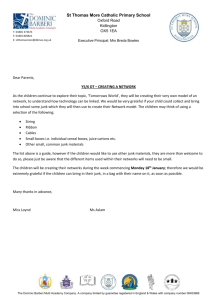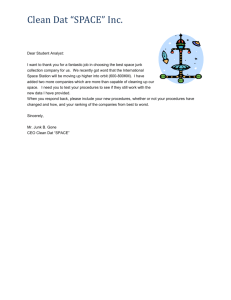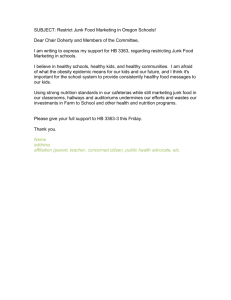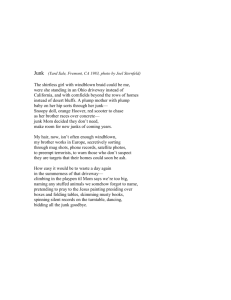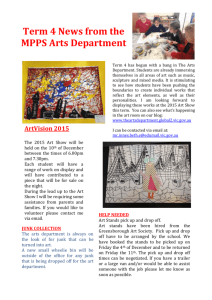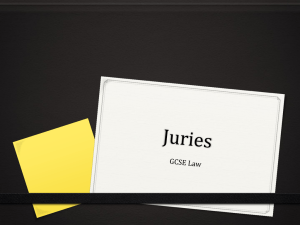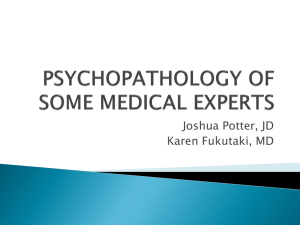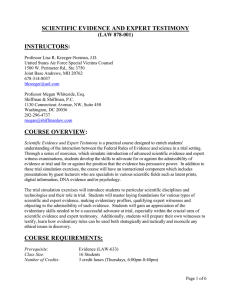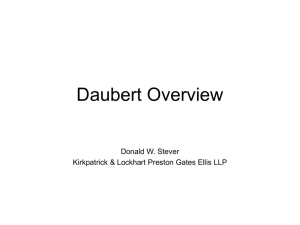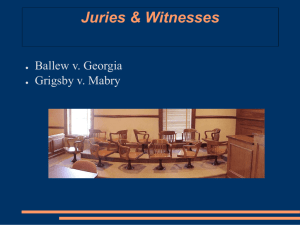SM: Science in Court
advertisement
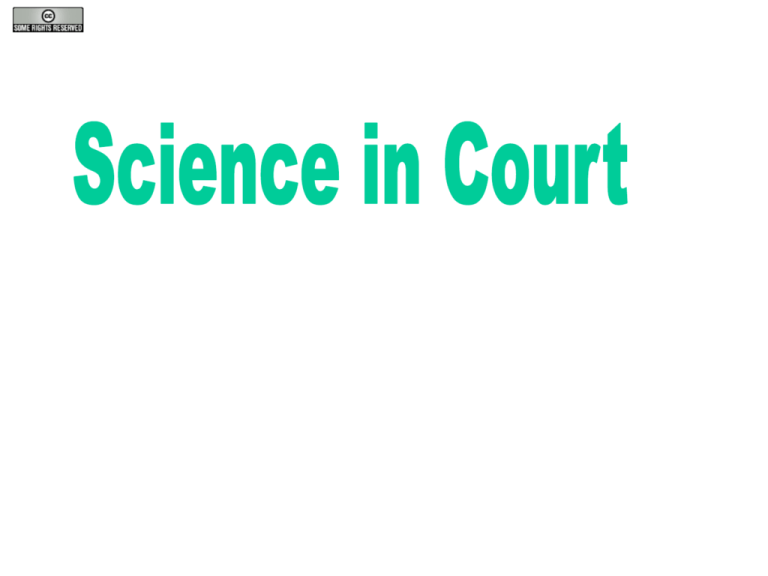
How is Science Used By . . . Courts: “Ordinary” Litigation Evidence Serial Litigation Disciplines: Medicine, chemistry, physics, toxicology, physical and cultural anthropology, statistics, engineering, economics, psychology, law, accounting, biology, document examination, sociology, linquistics, ballistics and weapons identification. Cases: Homicide (cause of death), arson, forgery, possession or sale of controlled substances, antitrust, environmental litigation, products liability, professional negligence, Title Seven, personal injury, insanity defense, embezzlement. Prevalence: 23% of judges report seeing scientific evidence more than half the time. . . The Advocacy System Selective Use of Data The Necessity of Deciding Does The Science Exist? Birth defects, cancer, diseases Pipe physics “More Probable Than Not” 2σ Results Concepts What is “Insanity”? Theories Elements Evidence Relevance Admissibility Proof Scientific Evidence Helping the Trier of Fact Hypothetical Questions vs. Opinion Evidence vs. Opinions based on inadmissible evidence Policy Gatekeeping vs. Right to a Jury The Economist’s (Scientist’s) Instinct The Lawyer’s (Judge’s) Instinct Do Juries Understand? Witness Demeanor Doctrine Probative Value vs. Unduly Prejudicial General Rule Scientific Evidence Just when a scientific principle or discovery crosses the line between experimental and demonstrable stages is difficult to define. Somewhere in this twilight zone the evidential force of the principle must be recognized, and while courts will go a long way in admitting expert testimony deduced from a well-recognized scientific principle or discovery, the thing from the the deduction is made must be sufficiently established to have gained general acceptance in the particular field in which it belongs” Frye v. United States 293 F. 1013 (DC Cir. 1923) Is This a Good Rule? Does “Science” = Peer Review? Daubert v. Merrell-Dow Pharmaceuticals, Inc. 509 US 579 (1993) The Daubert Factors 1) 2) 3) 4) Can the knowledge be tested? Has it been subjected to peer review? What is the known or potential error rate? Is the method generally accepted within the community? Did Daubert Cut Back on Junk Science? “We recognize that, in practice, a gatekeeping role for the judge, no matter how flexible, inevitably on occasion will prevent the jury from learning of authentic insights and innovations. That, nevertheless, is the balance that is struck by the Rules of Evidence designed not for the exhaustive search for cosmic understanding but for the particularized resolution of legal disputes.” Justice Blackmun Is This a Good Rule? Rehnquist: “I defer to no one in my confidence in federal judges; but I am at a loss to know what is meant when it is said that the scientific status of a theory depends on its "falsifiability," and I suspect some of them will be, too. I do not doubt that Rule 702 confides to the judge some gatekeeping responsibility in deciding questions of the admissibility of proffered expert testimony. But I do not think it imposes on them either the obligation or the authority to become amateur scientists in order to perform that role.” Is This a Good Rule? Faigman Article: Should we extend the scientific method to all expertise? Advocacy vs. Science Finding and Managing Experts Pushy Lawyers Honesty The Academic Witness The Professional Witness How Well Do Juries Perform? Technical Competence Teaching the Jury “Everybody knows . . . ” Improper Purposes “California Juries . . .” Surveys Beyond the One-Off Case Legal Interactions Between Cases: Collateral Estoppel Institutional Interactions Between Cases: Human Capital & Financing Discovery Junk Science Strategies Settlement vs. Litigation The Pipe Wars A Seller’s Market Pushing The Science Collapse 20 Verdict 2 Mean CASES 10 Verdict 1 0 1979.0 1982.0 1980.0 YEAR 1984.0 1983.0 1986.0 1985.0 1988.0 1987.0 1990.0 1989.0 1993.0 1992.0 What’s Going On? Pricing Claims Uncertainty = Science + Juries Do We Trust The Process? How Fast Does the System Reach Equilibrium? Does the System Ever Reach Equilibrium? Perceptions: The Bendectin Cases Turning Testimony into Publications Junk Science Clinical Ecology Repressed Memory Junk Publications Junk TV Science by Lawsuit Elizabeth Loftus

